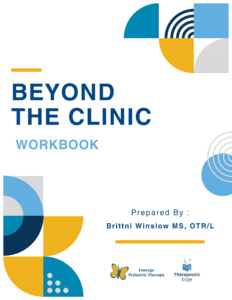
Interoception connects our emotions with our bodies. It’s critical in creating a body map to inform us about meeting our basic needs.
Here is an ‘Out of the Pocket’ blog post to give you the fast facts. Children with a sensory processing disorder often struggle to process information received through the sensory system. This means they might not be able to detect hunger, thirst, fatigue, emotions, and even pain.
We have EIGHT senses:
FACT #1: Your skin has receptors to let you know when you are touched and with how much pressure. We can also detect pain and injury to the skin. Interoception works in a similar way. Our organs have a sensitive lining and can give us information. We feel hunger, thirst, cramping, pain, and more from the receptors in our organs. Many people have trouble connecting the feelings to their meanings and seeing ‘patterns’ in their body’s signals. If this happens, we can learn to practice through interoceptive work. Learning to recognize the feelings and figure out what they mean is interoception.
FACT #2: Emotional awareness is also interoception. Think about your body when you are angry. Your body feels hot, your breathing quickens, you may feel stomach pain or cramping, and your cheeks may get red. Emotions are ‘felt’ in your body. We’ve all heard about children who get a tummy ache when it’s time to go to school. What we know is they may feel anxiety or worry and it manifests in the stomach. Your child is no different. He may feel emotions in his body and if he cannot use his words to tell you, he may act out. Here’s another example. When you do not eat, you may feel cranky. Even Snickers candy bars use this concept in their commercials. That’s INTEROCEPTION!
FACT #3: Interoception affects toileting. Many children with sensory difficulties have trouble with bowel movements. My own children needed diapers long after most of our friend’s children. When our bladder is full, we know it’s time to use the toilet. If we have intestinal cramping, we find the nearest restroom. Many children do not feel these urges. They may feel them too late or not at all. Bedwetting, frequent accidents, and holding stool/constipation are common when children struggle with interoceptive awareness. As an OT, I’m often told that my pediatric clients prefer to poop into a diaper. This might be so that they can actually ‘FEEL’ the poop leaving their body.
FACT #4: Some children do not understand how to react to information from their bodies. If they do not feel the information OR feel it too little or too much, they may misinterpret body signals. Feelings can become mixed up or confused. Remember that a child may seem as though they are misbehaving or acting out when they may not understand the way their body feels. This is why we need to look at a child’s behavior as a way of communication.
FACT #5: Sensory activity diets or activities designed for regulating sensory often help with interoceptive awareness. Just like the other senses, interoception can improve! Practicing understanding emotions and feelings can be helpful to our children and adults. Also, naming feelings when they occur can be helpful. For example, when a child asks for a drink of water say, “You are feeling thirsty.” Also, when she is happy ask her to stop and notice the way her body feels. Is she smiling? Does she feel comfortable? How does she know? Interoception is something we will talk about a lot more in our blog.
Don’t forget to read my new book, Interoception How I Feel: Sensing My World From the Inside Out.



